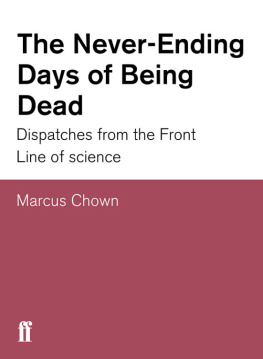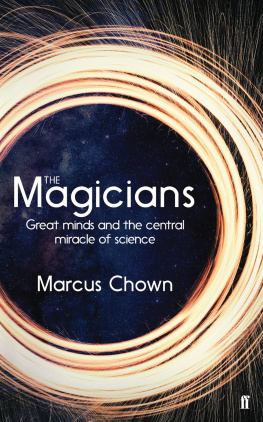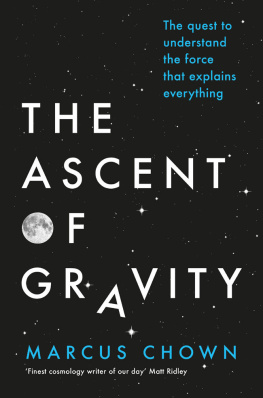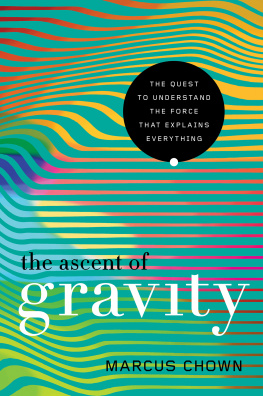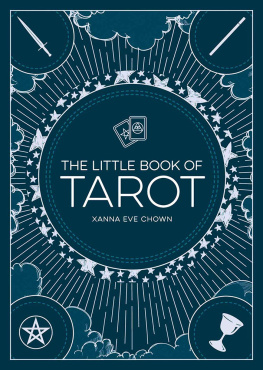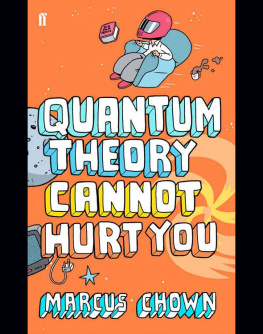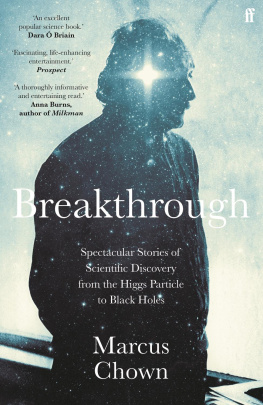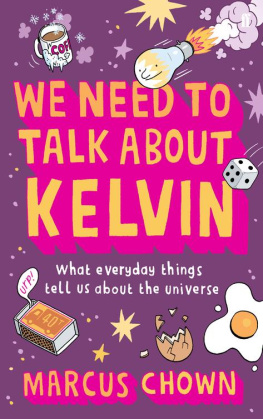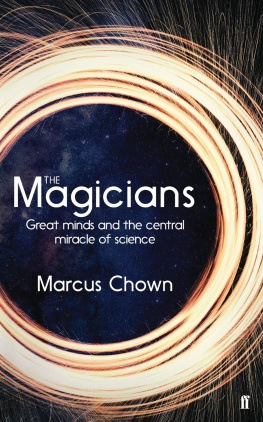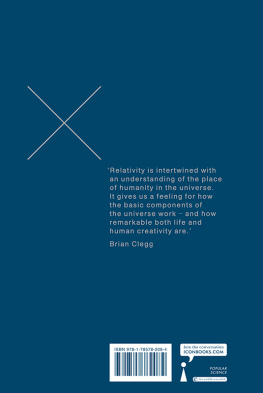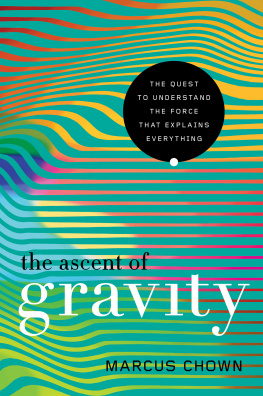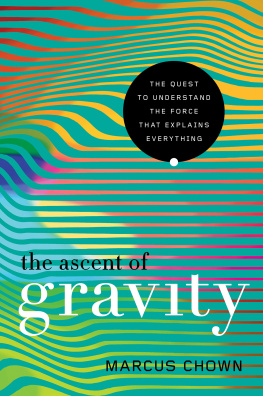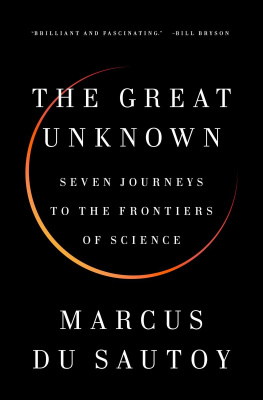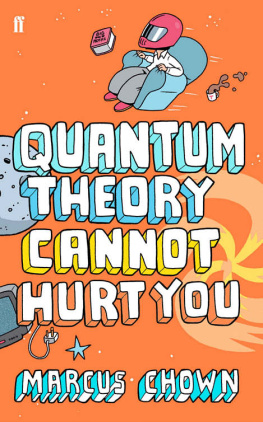To Geoff & Helen, Martin & Anne, and Shirley
Contents
Weve come a long way. Once upon a time we thought the world rested on the back of a turtle and the Sun was a ball of molten iron not much bigger than Greece. Now we have a theory of small things like atoms quantum theory which not only explains why the Sun shines and why the ground beneath our feet is solid but has also given us lasers, nuclear reactors and iPod nanos. In addition, we have a theory of big things like the Universe as a whole Einsteins general theory of relativity that predicts the existence of black holes and suggests that there was a beginning to time.
Nobody yet knows how the theory of the small meshes with the theory of the big thats theorists work-in-progress but no matter. The point is that previous generations would have killed for the kind of knowledge we now possess about the world. It truly is a privilege to be alive today. For the first time in history, we have a good idea of the extent of the Universe we can see all the way to the light horizon that forms the boundary of observable space and we have a good idea of the content of the Universe we can count up the building blocks of And not only do we have an idea of the extent and content of the Universe but we also have a strong indication of how it came to be. The Universe burst into being about 13.7 billion years ago in a titanic explosion called the Big Bang and has been expanding and cooling ever since. Our Milky Way along with all the other galaxies simply congealed out of the cooling debris of the Big Bang fireball.
Admittedly, we still do not know exactly what the Big Bang was, what drove it or what happened before the Big Bang (or whether this is even a meaningful question). However, the remarkable thing is that we are the first generation with a realistic chance of answering such ultimate questions. And not only these ultimate questions but a host of others, such as:
* What is beyond the edge of the Universe?
* Where does all the complexity we see around us come from?
* What are the limits of what we can know?
* Is the human brain doing more than any computer?
* Where does the everyday world come from?
* Why do we experience a past, present and future?
* Why are loaded fridges difficult to budge?
* Will we ever find ET out in the Universe?
* Can life survive for ever in the Universe?
I address all these questions in this book. To answer them, I have talked to some of the most imaginative and daring scientists in the world. In discovering their extraordinary answers, you will learn among other things how the Big Bang might have been spawned by a collision between island universes; how a single remarkable number contains the answer to every question we could ever ask; how the most widely accepted theory of the Universes origin implies that Elvis is alive and well and living in another space domain (in fact, an infinite number of other space domains); how nobody can rule out the possibility that the stars are technological artefacts built by extraterrestrial intelligence; how a computer program a mere four lines long could be generating you, me and everything we see around us; how all of us might be resurrected in a computer simulation at the end of time.
The last possibility inspired the title of this book. According to one controversial physicist, when you die, you are fast-forwarded to the dying days of the Universe where you wake up inside the ultimate cyber reality. Stretching before you you will find a subjective eternity of existence the never-ending days of being dead.
The ultimate questions I tackle are by no means a definitive selection; they are simply ones that have intrigued me personally. Nevertheless, there are themes which tie many together. I have therefore grouped together the questions into convenient categories. First, there are those whose answers shed light on the nature of the universe questions such as What is beyond the edge of the Universe? and Where does the Universes complexity come from?. Second, there are questions whose answers illuminate the nature of reality Where does the everyday world come from? and Why do we experience a present?. Finally, I address questions which address the place of life (and us) in the Universe such as Will we ever find ET? and Can life survive for ever in the Universe?.
Some of the ultimate questions I address may at first sight seem abstract and esoteric. But it is a remarkable feature of such questions that they invariably have significance for our mundane everyday lives. There is no more basic question, after all, than Where does the everyday world come from?. And, even the most esoteric question I ask Does a single number contain the secret of the Universe? turns out to have a bearing on the origin of human imagination and creativity and whether the brain is doing something more than any computer. I think this is the nature of science at the leading edge. It is ultimately about down-to-earth things we all care about Where did we come from? Where did the Universe come from? What the hell are we doing here?
One last thing. The answers I present are not necessarily linked to each other. This is characteristic of science at the frontier, where new ideas are so new they have not yet been woven into the tapestry of accepted science. Some will stand the test of time and some will not. Some are even mutually exclusive. All the ultimate questions are hard questions. The hardest questions are always the most interesting ones. Answering them requires journeying to the very frontier of science and, in fact, way beyond. Have fun!
Marcus Chown
The word billion is used in this book for a thousand million, 1,000,000,000.
Thanks for that line to Jim Crace and his brilliant novel Being Dead.
THE NATURE OF THE UNIVERSE
Elvis Lives
What is beyond the edge of the Universe? An infinity of other domains where all possible histories are played out
Whatever spot anyone may occupy, the universe stretches away from him just the
same in all directions without limit.
Lucretius, 1st century BC
There are two things you should remember when dealing with parallel universes.
One, theyre not really parallel, and two, theyre not really universes.
Douglas Adams, The Hitchhikers Guide to the Galaxy
Far, far away, in a galaxy with a remarkable resemblance to the Milky Way, sits a star that looks remarkably like the Sun. And on the stars third planet, which looks remarkably like the Earth, lives someone who, for all the world, looks like your identical twin. Not only do they look the same as you but they are reading this exact same book in fact, they are focused on this very line. Actually, it is weirder than this. A whole lot weirder. There is an infinite number of galaxies that look just like our own galaxy, containing an infinite number of versions of you whose lives, leading up until this moment, have been absolutely identical to yours.
If you think this is pure science fiction, think again. The existence of your doubles is no fantasy. It is an unavoidable consequence of the standard theory of our Universe. And it is no airy-fairy consequence either. If you could voyage far enough across the Universe, it is inevitable that you would run into one of your doubles. In fact, it is even possible to calculate how far you would have to go to meet your nearest doppelgnger. The answer is roughly 10^10^28 metres.
In scientific notation, the number 10^28 (1028) is 1 followed by 28 zeroes, which is 10 billion billion billion. Consequently, 10^10^28 is 1 followed by 10 billion billion billion zeroes. It is a tremendously big number. It corresponds to a distance enormously farther than the farthest limits probed by the worlds biggest, most powerful telescopes. But do not get hung up on the size of this number. The point is not that your nearest double is at a mind-bogglingly great distance from the Earth. The point is that you have a double at all.

